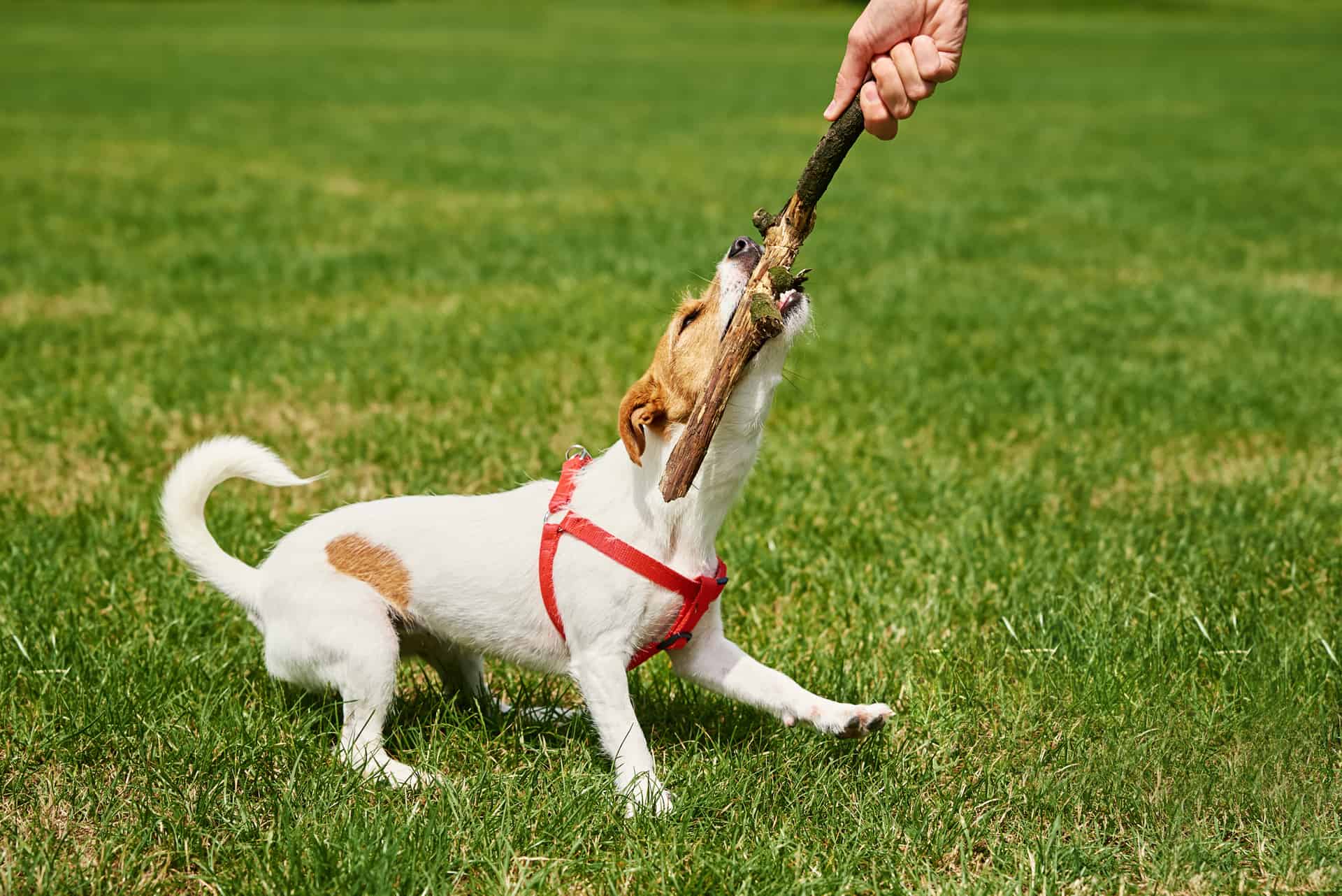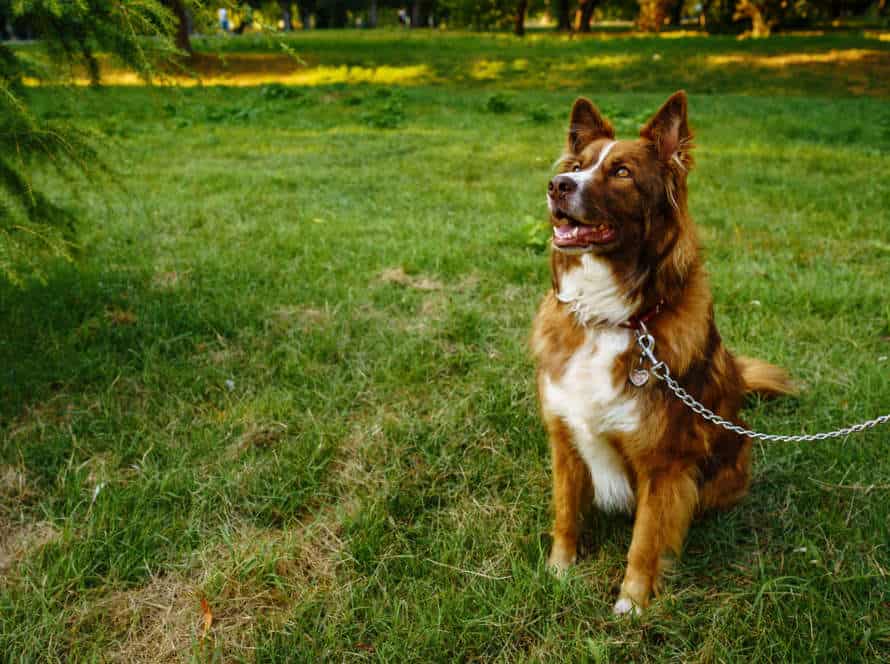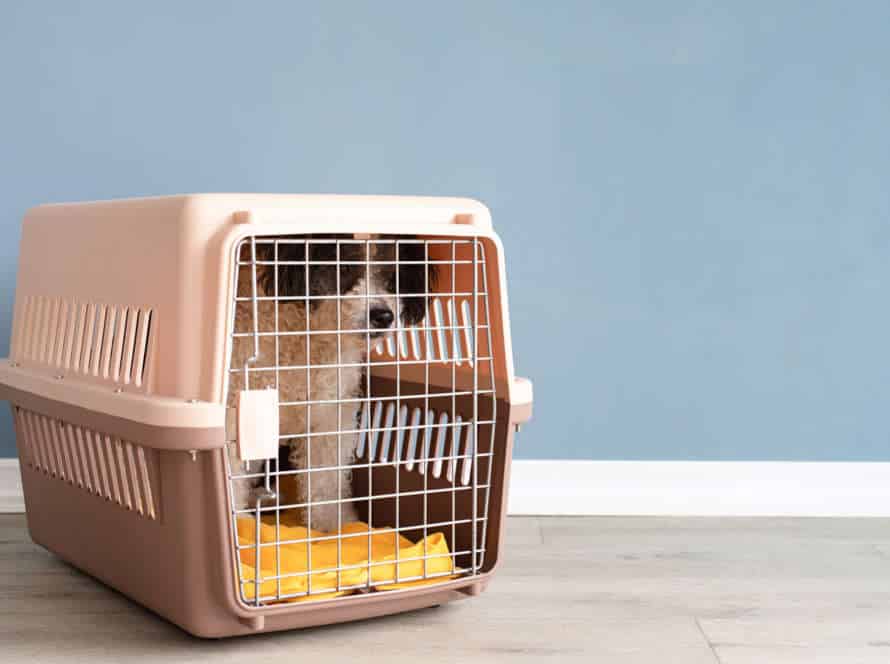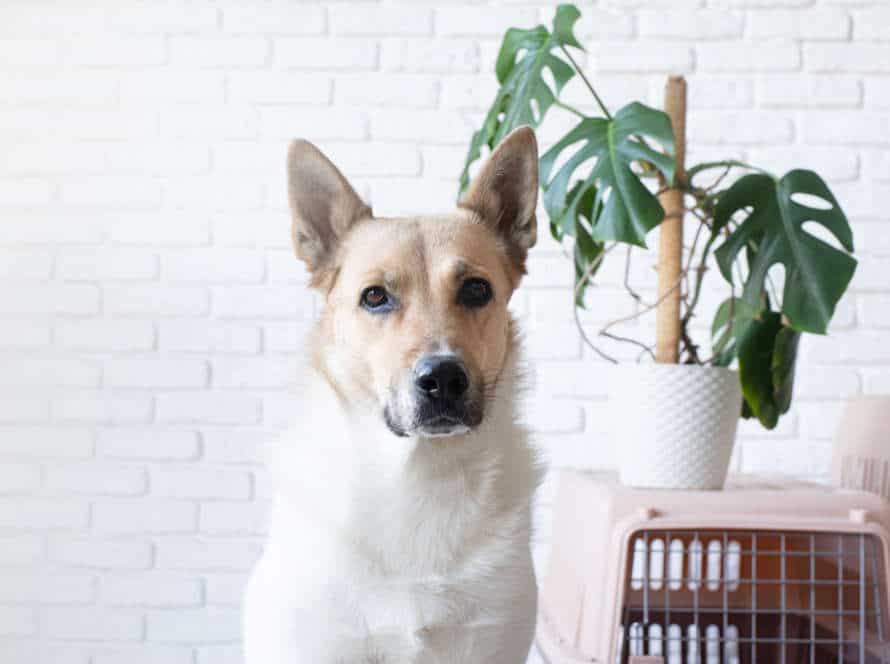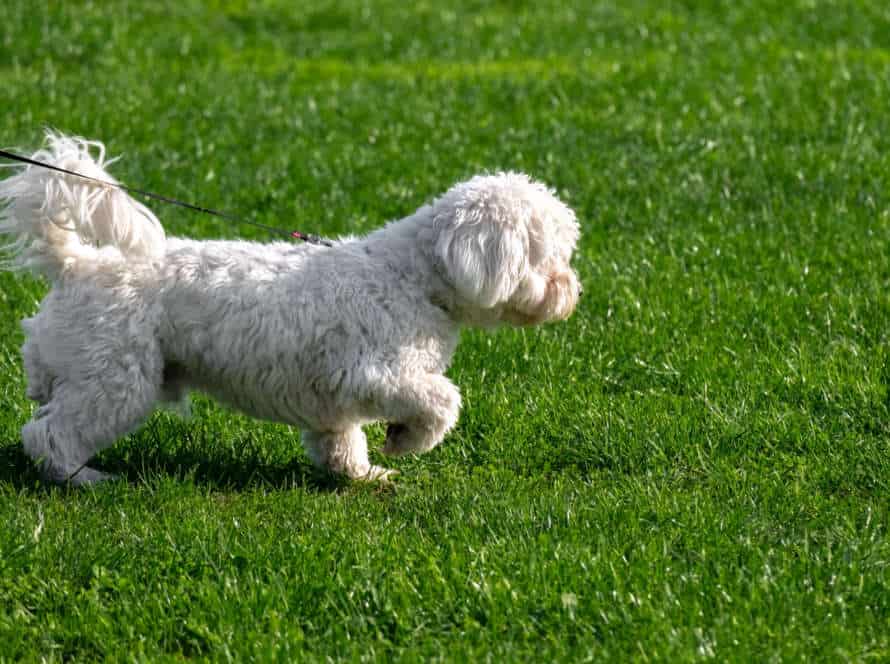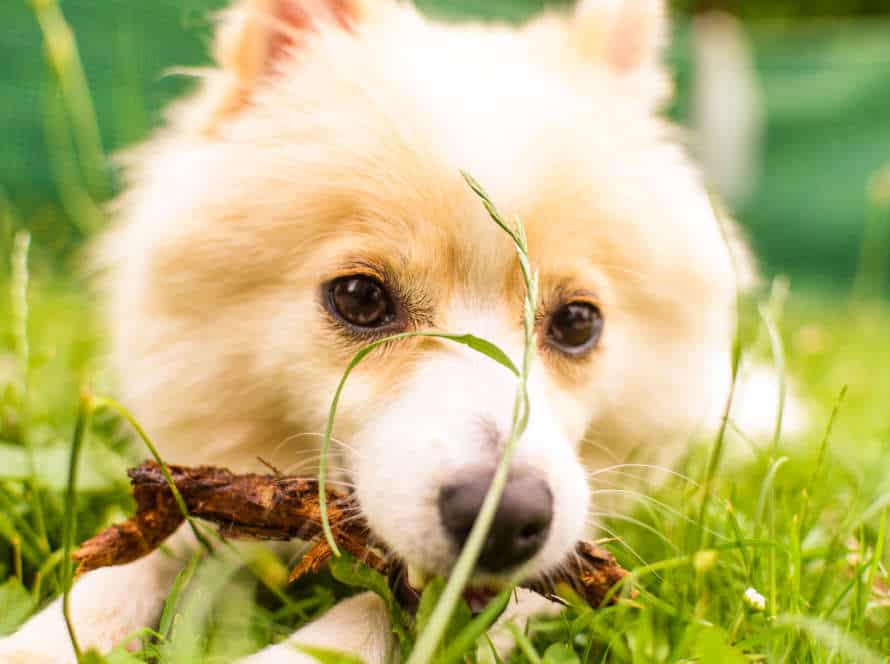Breed-Specific Biting Behaviors
Puppies’ biting behavior is usually a mix of their breed and temperament. Some breeds are more likely to bite, but all can. This article looks at the relation between breed and temperament in puppies that bite.
Understanding the genetics of biting behavior
Grasping the genetics of biting actions in canines can help pet owners learn why and how their puppies bite. And, how to tackle and stop biting behaviors. The role of breed and nature in puppy biting habits is vital in spotting biting inclinations and reducing undesired biting.
Diverse dog breeds have diverse inclinations to bite, founded on their genetics and upbringing. For instance, German Shepherds are well-known for their defensive instincts. This can manifest as aggressive and biting conduct if not trained properly.
Similarly, a pup’s temperament, such as being anxious or timid, can cause biting behaviors. It’s essential to comprehend your pup’s genetics and nature to give proper training and socialization to hinder biting.
Early socializing, training, and positive reinforcement can help puppies build healthy behaviors and reduce unwanted biting inclinations.
A total knowledge of breed-specific biting habits and puppy temperament can help pet owners supply a pleasant and secure environment for their furry friends.
Common biting behaviors displayed by specific breeds
It’s important to understand the breed-specific biting behaviors for handling puppy biting behavior properly. Different breeds have distinct patterns of biting, depending on their temperament, breed traits, and the training techniques used.
- Retrievers: They are friendly, loyal and playful, yet they may nip and mouth during playtime.
- Pitbulls: Aggressive and possessive, they have a strong prey-drive. A perceived threat to their owner or property may cause aggression.
- German Shepherds: As natural protectors, they may be territorial. This can lead to guarding behaviors with biting.
- Dalmatians: Highly energetic, they may bite to entertain themselves.
Socialization and training are vital to prevent and manage biting in all breeds, no matter their personality.
Tips for managing biting behavior in breed-specific puppies
Puppies of certain breeds may bite due to their breed and temperament. Here are some tips to manage this behavior:
- Provide lots of exercise and mental stimulation so they don’t get bored.
- Use positive reinforcement to show what behavior is good.
- Don’t play roughly or aggressively, as it might lead to more biting.
- Yelp or take away attention when the puppy bites to show it’s not okay.
- If biting persists, seek professional help.
- Remember, biting is normal for puppies, but it can be corrected with consistent training and management.
The Influence of Temperament on Biting Behavior
Research suggests that temperament has a big impact on a puppy’s biting behavior. When selecting a puppy, breed and temperament should be taken into account. To understand temperament’s role in biting, let’s investigate the factors that could be influencing it.
Understanding the role of temperament in puppy biting behavior
Puppy biting behavior is affected by two things: temperament and breed. It’s vital for pet owners to understand their puppy’s temperament. Here are the key points to keep in mind:
- Temperament is a puppy’s personality. It includes activity level, sociability, and how they adjust to new surroundings.
- Breeds can have temperaments that make them more likely to bite, such as those bred for protection or guarding.
- Early socialization and training can help manage biting behavior, no matter the breed or temperament.
- If your puppy’s biting gets aggressive or excessive, seek professional help.
By having an understanding of temperament and its influence on biting behavior, you can take a proactive approach to train and care for your furry friend.
Common temperament traits that contribute to biting behavior
Biting in dogs can be linked to their temperament. Common traits that can bring this behavior include:
- Fearfulness. Fearful dogs may use biting as a defense if they feel threatened.
- Aggressiveness. Dogs with dominant personalities are more likely to bite, due to their assertive and territorial nature.
- High Energy. Dogs with lots of energy may unintentionally hurt others through biting, from overexcitement.
- Lack of Socialization. Dogs not socialized with other dogs or people could view them as a threat and respond aggressively.
Breeds, age, health, and environment can all affect biting behavior. It’s important to train and socialize your dog from young age, to prevent biting.
Tips for managing biting behavior in puppies with specific temperaments
Puppies all bite during teething, but breed and temperaments make a difference. Here’s how to manage biting if your pup has specific temperaments:
- Fearful pups? Insecurity or anxiety might lead them to bite. Socialize and train with positive reinforcement to build confidence.
- Dominant pups? They may bite to assert their authority. Establish clear boundaries and rules.
- Hyperactive pups? Nipping and biting come from overstimulation, stress, or boredom. Provide playtime, exercise, and mental stimulation.
Pro Tip: Training and positive reinforcement are key. Be patient and stay committed to good habits.
Socialization and Bite Inhibition Training
Socialization and bite inhibition training are both key for training puppies to cut down on biting. Socialization teaches puppies how to act around people and other animals. Bite inhibition trains them to control bite force. Both of these should happen right at the start, so puppies learn the right kind of behavior.
The role of socialization in preventing biting behavior
Socializing puppies is key for preventing biting. Introduce them to various people, animals, and places. Bite inhibition training teaches pups to not bite too hard. This involves setting boundaries and rewarding good behavior. Breed and temperament also play a part in biting. Pro tip: Hire a pro trainer or behaviorist to help socialize and train your pup.
Techniques for socializing puppies to prevent biting behavior
Socializing puppies is essential to stop biting and help them learn bite inhibition. Here are some tried-and-true methods:
- Foster positive relations with people and other animals, early on.
- Introduce puppies to novel situations and environments slowly.
- Use positive reinforcement training to reward desirable behavior and discourage bad behavior.
- Make sure puppies get enough exercise and playtime to expend energy and minimize biting tendencies.
Plus, a pup’s breed and temperament can affect their tendency to bite. Some types are more prone to aggression and need extra socialization and training.
Tip: Consistency is key when training a pup. Establish rules and limits and stick to them to promote good behavior and stop biting.
Tips for teaching bite inhibition to puppies
Teaching bite inhibition to puppies is crucial. To help them learn this essential skill, try these tips!
-
Socialize pups by 8 weeks old so they know how to interact properly with humans and other dogs.
-
Use toys and treats during playtime to redirect their chewing behavior.
-
Avoid punishing or correcting physically, as this can lead to aggression.
-
Be consistent and reward good behavior.
-
Understand that breeds and temperaments can affect biting. Identify individual triggers and tailor your training.
-
Remember, teaching bite inhibition takes patience. But it pays off in the end!
Pro tip: Consistency is key. Stay patient and consistent with training and your pup will learn the right behavior over time.
Managing Biting Behavior in Puppies
Managing puppy biting is a must for responsible pet owners. It can be normal as part of teething. But, it can also show a deeper issue. Being aware of a puppy’s breed and personality can help owners manage biting behavior better.
What affects puppy biting? Let’s investigate.
Understanding the reasons behind biting behavior in puppies
Puppies bite for various reasons – exploration, teething, play, and exercise. It’s good to know why they do this in order to manage it. Teething is one reason. To lessen the discomfort, they chew on things. They also play and exercise by biting and mouthing. Exploration is another reason. Puppies use their mouths to interact with objects around them. Fearful or aggressive temperament in certain breeds or individual puppies can cause them to bite. It’s important to address the root causes of biting in puppies. Redirecting attention, providing chew toys, and professional training can help.
Positive reinforcement training techniques for managing biting behavior
Positive reinforcement training is a great way to manage biting in puppies. By rewarding good behavior and ignoring bad behavior, it can help encourage desired behaviors to be repeated. Here are some techniques to try:
- Socialize your pup young, so they get used to different people, animals, and environments.
- Say “no” or “leave it” to stop biting, but don’t use physical punishment.
- Offer toys and treats to redirect their biting towards better objects, like chew toys.
- Praise and reward them when they play nicely or chew on their toys.
Remember, managing biting behavior can be hard. And the success of positive reinforcement training can depend on your pup’s breed and personality.
Tips for correcting biting behavior in puppies
Puppies bite naturally, but it can become a problem if not handled properly. Here’s what you should do:
- Train with positive reinforcement. Give treats and praise when your pup licks instead of bites.
- Give your pup chew toys to bite on instead of you.
- Set up a routine for playtime, exercise, and rest. This helps to stop over-stimulation and aggression.
- Socialize your puppy with other dogs and people. This teaches them proper play and how to inhibit biting.
- Be aware of situations that trigger biting, such as fear, stress, or pain.
- If biting continues or gets aggressive, seek help from a trainer or behaviorist. It takes time and patience to correct this behavior, as each breed and individual puppy has different temperaments and biting habits.
Conclusion and Resources
Assessing breed and temperament in puppy biting behavior reveals many factors that have an influence. It’s key to understand the breed, temperament, and environment of a puppy. Knowing these things helps owners control biting behavior. Here is a list of resources to help you understand why puppies bite and how to manage it:
Best practices for managing biting behavior in puppies
Puppy biting is usual, yet it can be controlled with steady instruction and attention from pet owners. The pup’s breed and temperament may also affect the biting. Here are some tips for managing pup biting:
- Be uniform with training and rewards. Daily and consistent training of your pup not to bite is a must. Rewards for good behavior can boost this training.
- Notice signs of aggression. If your pup is displaying any signs of aggression, like growling or snarling, get professional help from a vet or animal behaviourist.
- Give lots of chew toys. Pups need to chew as part of their natural teething, so offering them lots of secure and suitable chew toys can help them with their biting.
- Recognize the role of breed and temperament. Knowing your pup’s exact needs and behavior can help you manage their conduct and offer them the correct care and training they require.
Pro tip: Don’t forget that consistent training and attention from pet owners is essential in controlling puppy biting. With tolerance and commitment, you can aid your pup to become an obedient and contented adult dog.
Additional resources for managing biting behavior in puppies
It’s essential to comprehend that puppy biting is a natural, usual part of their development. To prevent harm and raise a well-behaved adult dog, this behavior must be managed and trained.
Certain breeds, due to their genetics and purpose, may be more prone to biting behavior. For instance, herding and guarding breeds are more likely to nip and bite.
Fortunately, resources are available to manage and train puppy biting behavior. These include:
- Puppy classes and professional trainers
- Chew toys and other biting alternatives to switch their behavior.
- Consistent and positive reinforcement techniques
- Socialization with other dogs and people to learn bite inhibition.
By using these resources and understanding the breed and temperament of your puppy, you can properly manage and train their biting behavior, setting them up for a safe and healthy life.
Frequently Asked Questions
Q: Does breed affect a puppy’s biting behavior?
A: Yes, certain breeds may have a higher tendency towards biting behaviors due to their natural instincts, such as herding or guarding breeds. However, it is important to remember that individual temperament also plays a significant role.
Q: Can a puppy’s temperament influence their biting behavior?
A: Absolutely, a puppy’s individual temperament will greatly impact their biting behavior. A timid or fearful puppy may resort to biting as a defense mechanism, while an overly playful or assertive puppy may bite as a way to communicate their excitement or dominance.
Q: Is it possible to train a puppy out of biting behaviors?
A: Yes, with proper training and socialization, most puppies can be trained out of biting behaviors. Consistent reinforcement of positive behavior, redirection of biting to appropriate toys, and proper socialization with humans and other animals are all important components of successful training.
Q: What are some factors that may contribute to a puppy’s biting behavior?
A: Lack of socialization, inadequate training, insufficient exercise, and unaddressed physical discomfort or medical issues can all contribute to a puppy’s biting behavior.
Q: Should a puppy be punished for biting?
A: No, punishment is not an effective way to address biting behavior in puppies. This may actually increase fear and aggression, exacerbating the problem. Instead, focus on positive reinforcement and redirection techniques to encourage appropriate behavior.
Q: Is it normal for puppies to bite?
A: Yes, it is normal for puppies to playfully nip and bite during their teething phase. However, it is important to discourage inappropriate biting behavior through proper training and socialization to prevent it from becoming a problem later on.

